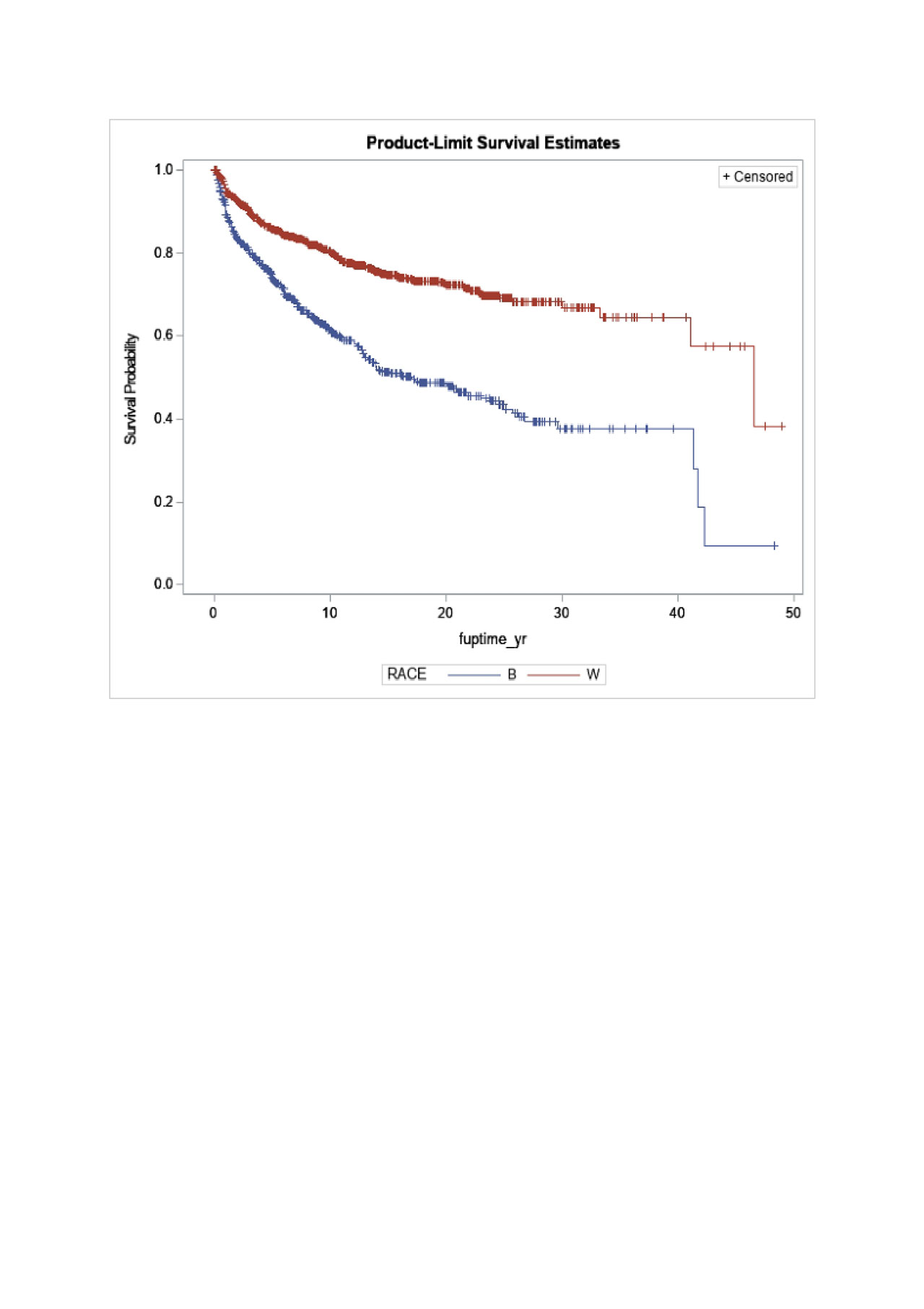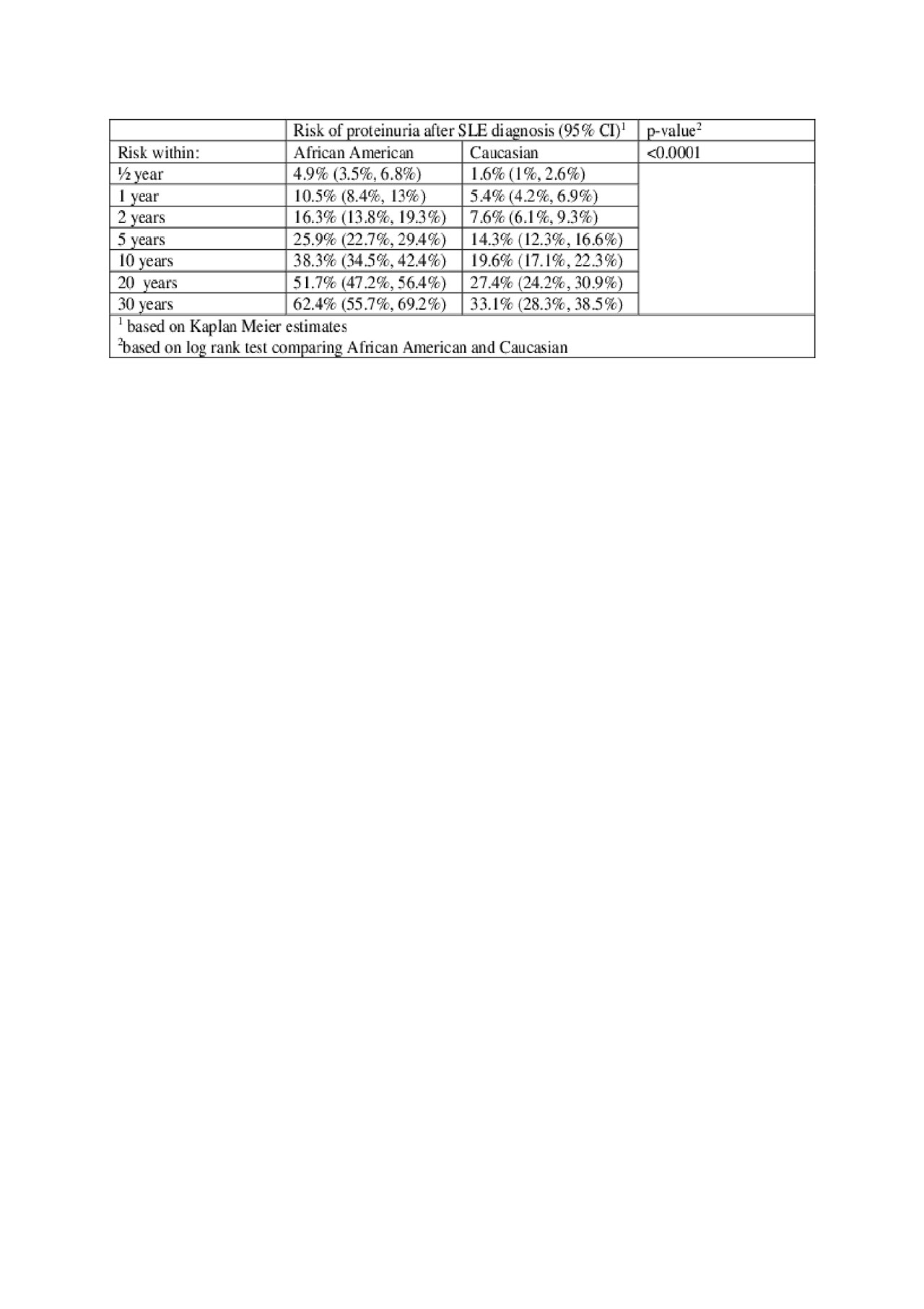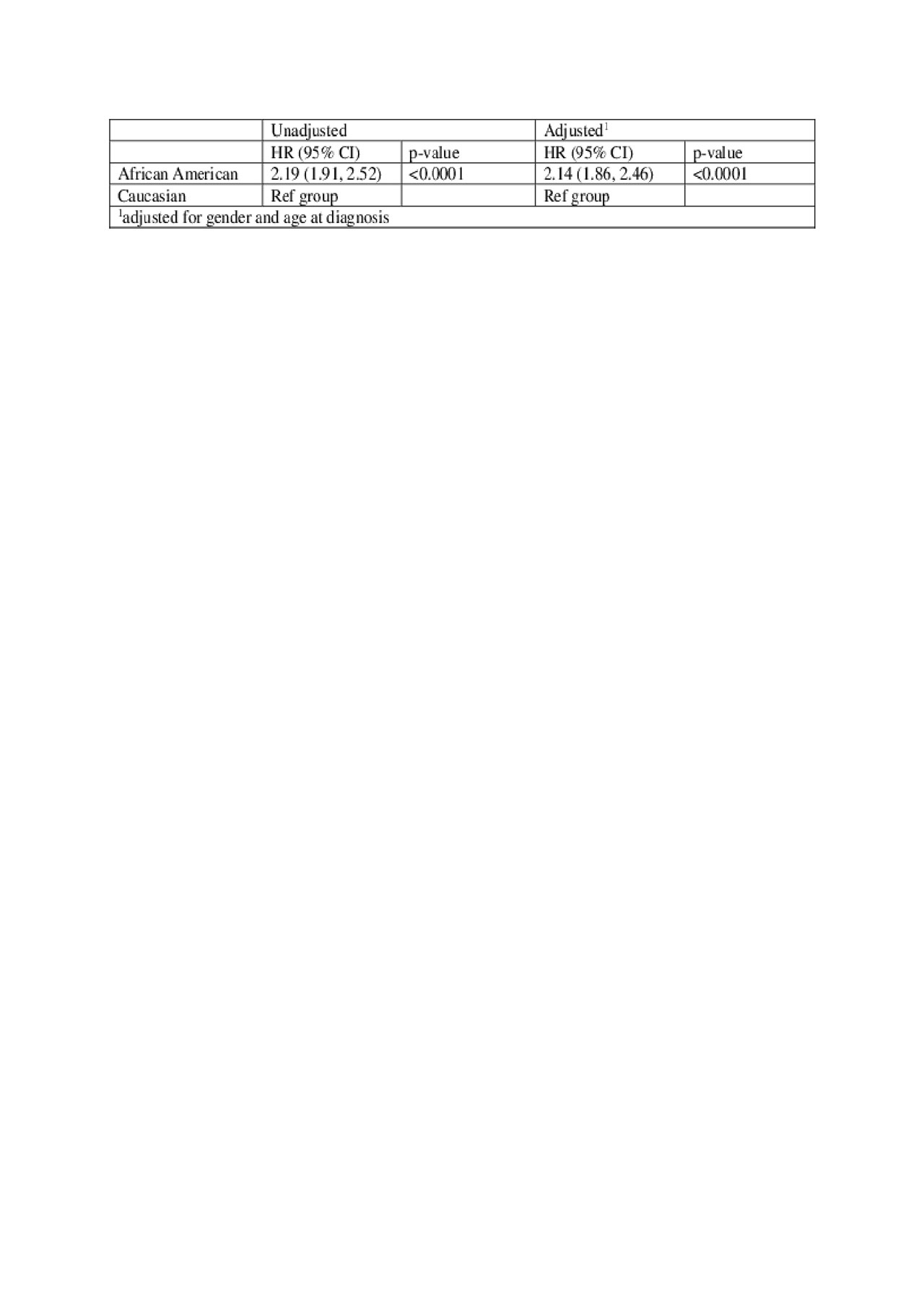Session Information
Session Type: Poster Session (Sunday)
Session Time: 9:00AM-11:00AM
Background/Purpose: African-Americans lupus nephritis is more common than in Caucasians, more severe and more likely to lead to end stage renal disease. We asked whether the difference in frequency was just at the time of SLE diagnosis.
Methods: 1849 SLE patients were included in this analysis. The patients were 93% female, 39.3% African-American and 60.7% Caucasian. 478 patients (27.2%, 271/997 African-American and 15.6%, 207/1330 Caucasian) who had proteinuria before or at the date of diagnosis (± 1 month) were excluded.
Results: The Kaplan-Meier curve of time to first proteinuria (in those without proteinuria at diagnosis) is shown in Figure 1. The separation between African-Americans and Caucasians starts almost immediately after diagnosis and continues to widen until year 30. Although it appears to level off at year 30, that is likely due to smaller numbers remaining in the cohort. Table 1 shows the estimated risk of proteinuria after diagnosis. The estimated probability of having proteinuria within 5 year is 26% for African-American patients and 14% for Caucasian patients. Risk accumulates even 5 years after diagnosis. Table 2 shows the hazard ratio for proteinuria after diagnosis. The risk of proteinuria is 2.19 times higher among African-American patients compared to Caucasians in the unadjusted model. After adjustment for age at diagnosis and gender, the risk remains 2.14 higher for African-Americans compared to Caucasians.
Conclusion: The increased risk of lupus nephritis in African-Americans is not limited to diagnosis or even to the first five years after diagnosis. Increased risk is present through 30 years after diagnosis. As these data also show continued risk in Caucasians, monitoring the urine protein/cr at every follow up visit is recommended for all SLE patients.

ACR 2019-AA risk of proteinuria after diagnosis-Figure1

ACR 2019-AA risk of proteinuria after diagnosis-Table1

ACR 2019-AA risk of proteinuria after diagnosis-Table2
To cite this abstract in AMA style:
Petri M, Li J. African-American Risk of Proteinuria After SLE Diagnosis Increases Throughout Thirty Years of Followup [abstract]. Arthritis Rheumatol. 2019; 71 (suppl 10). https://acrabstracts.org/abstract/african-american-risk-of-proteinuria-after-sle-diagnosis-increases-throughout-thirty-years-of-followup/. Accessed .« Back to 2019 ACR/ARP Annual Meeting
ACR Meeting Abstracts - https://acrabstracts.org/abstract/african-american-risk-of-proteinuria-after-sle-diagnosis-increases-throughout-thirty-years-of-followup/
